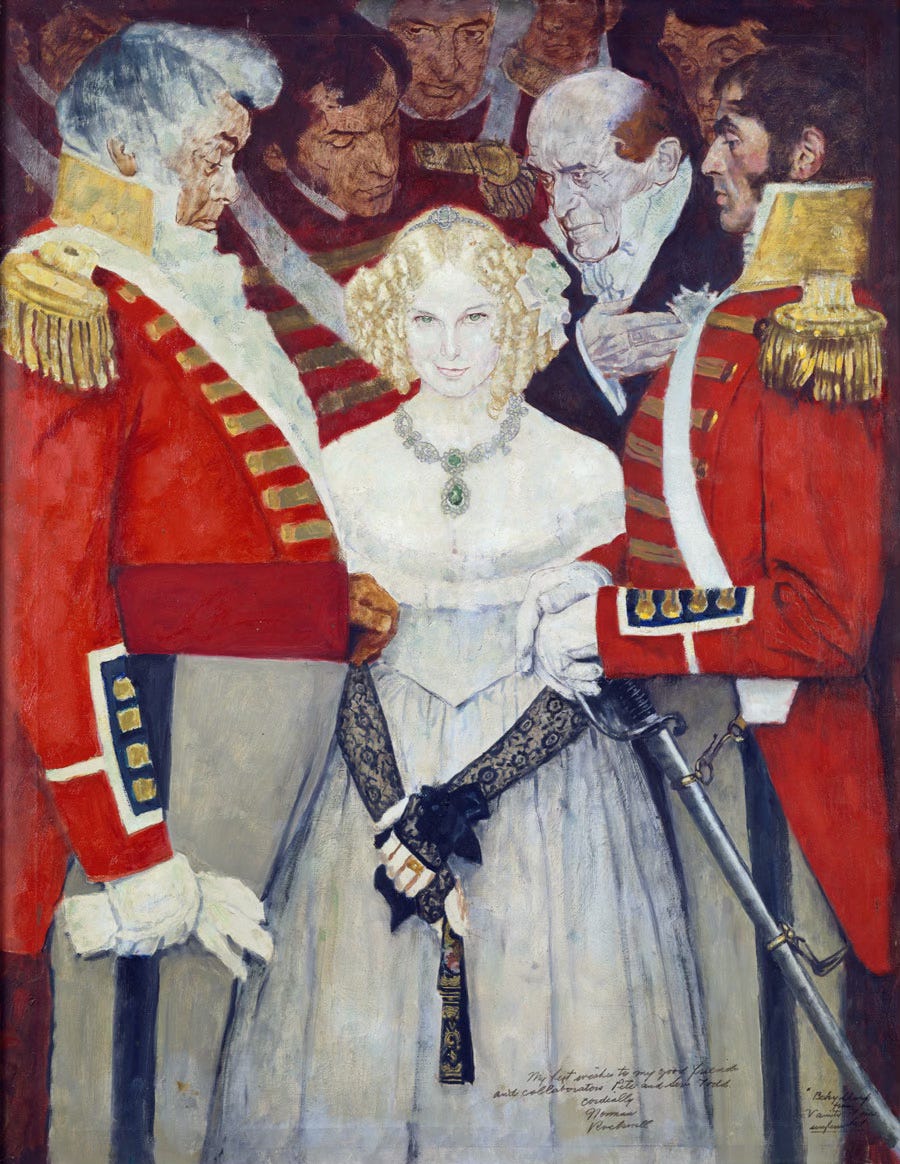Diary: Laura Kolb, From the Literary Annals of Women’s Deceit
In literature and life, women lie
Becky Sharp (1965), Norman Rockwell
In 1615, a now-forgotten pamphleteer named Joseph Swetnam published a treatise titled The Arraignment of Lewd, Idle, Froward, and Unconstant Women. In many ways an unremarkable entry into the long-running querelle des femmes, or debate about women, The Arraignment stands out for the sheer boisterous virulence of its first few chapters (which evince a misogyny so acute at least one woman wrote and published a refutation, an unusual move in early seventeenth-century England). Among Swetnam’s many accusations against the daughters of Eve is the repeated assertion that women lie. Women dissemble, flatter, entice, and deceive; they “worke their craft” with words, looks, gestures, and falsifying cosmetics. So abundant and various are the “crafty deceits of women” that, Swetnam asserts, they could never be recorded, even “if all the world were paper, and all the sea inke, and all the trees and plants were pens, and every man in the world were a writer.”
Keep reading with a 7-day free trial
Subscribe to Book Post to keep reading this post and get 7 days of free access to the full post archives.




